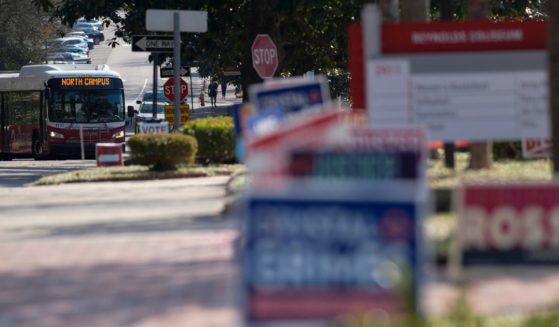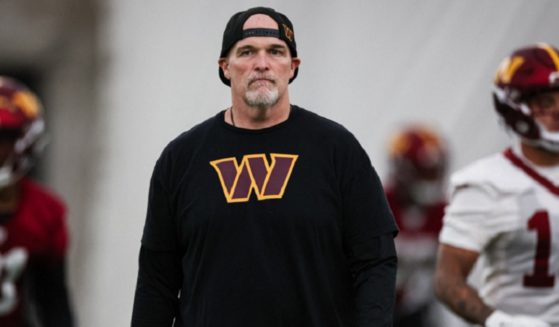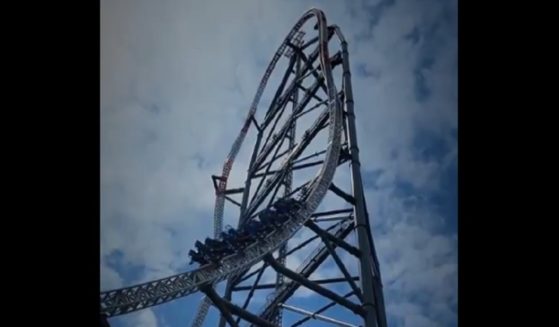Reporter Learns How Brutal EV Road Trips Can Be After Driving from New York to Washington DC
A reporter decided to try and use an electric car to drive from New York to Washington, D.C., but he soon found out what a disaster it is to try and use an EV for a long road trip.
Insider transportation writer Tim Levin decided to use a Toyota bZ4X electric SUV for his road trip from New York City to D.C. and back again, but ended up finding out that for EVs “road trips aren’t exactly their strong suit.”
In his April 15 article, Levin noted that the trip was a 500-mile slog that wouldn’t have been a big deal in a gas-powered car. But the experience caused him to note, “In a battery-powered vehicle, though, things aren’t always that simple.”
His chief complaint was that the trip’s drive time was extended by several hours because he had to pull over and charge the vehicle when the battery tapped out. He also discovered that real-world application makes the manufacturer charging claims — at the very least — inconvenient and suspect.
Levin said that Toyota claimed that the SUV’s maximum charge rate was 100 kilowatts, but because of real-world conditions, he never got anywhere near that maximum. Everything from the cold weather to the insufficient charging stations, even “settings built into the vehicle itself,” prevented him from getting the fastest charging rate. That meant he sat for hours twiddling his thumbs while the car slowly charged.
In the case of the internal settings, “Toyota engineered the SUV to prioritize battery longevity, a spokesperson said, which means putting a damper on fast charging, which can accelerate battery wear,” Levin wrote.
The charging times added at least two hours to his 9-hour road trip, he said. And sitting around waiting was a hard pill to swallow.
But that wasn’t the only drawback. There was also a certain level of anxiety in every trip because Levin had to “create a comfortable buffer” in the distance he had to travel and the miles his car said it had left in it before needing another charge. This is because actual operations don’t correspond to the manufacturer’s estimates on miles per charge.
“Factors like high speeds, inclines, and … use of the climate settings can deplete an EV’s range faster than expected. So unless you know your EV well, don’t blindly trust what it tells you,” he wrote of the mileage his car claimed it would get.
“Here’s an example. When I left the Electrify America station in New Jersey and set off for DC, the Toyota indicated 188 miles of range — plenty to drive the 138 miles remaining, right? Nope,” he wrote.
He ended up barely making the next charging station. And that was also a problem because finding suitable charging stations is not that easy.
Then there was the problem of using the heater, so he didn’t freeze while driving on a chilly morning. In a gas-powered car, the radiator naturally heats up and produces heat for the interior of the car all without any extra energy use. But in an EV, the heater is run off the battery, and that means it is depleting the battery on the road and giving the driver fewer miles per charge.
Especially because he had to do without heat on the road trip, Levin concluded that the whole experience was less than ideal.
“I’d be lying if I said I didn’t curse these silly electric cars under my breath once or twice,” he wrote.
Levin concluded his piece with a metaphorical heavy sigh, writing, “But the electric future seems inevitable at this point, so we might as well learn to live with it.”
This, though, may not be exactly true. Many are finally starting to see what a disaster EVs actually are on a number of fronts.
Famed British comedian Rowan Atkinson — who plays the hilarious pantomime character “Mr. Bean” — recently wrote that he feels he’s been “duped” by those pushing EVs because they simply aren’t as environmentally friendly as climate change religionists and government shills claim they are.
Others have also tried road trips in EVs and found that they simply aren’t conducive to long distance travel — especially over the long distances many have to travel in the United States.
EVs are also prohibitively expensive to most Americans, costing far more than the average gas-powered vehicle. And it’s a price that won’t be coming down any time soon either due to the cost of the batteries.
Weather is also a huge factor. In the U.S., winters usually get to freezing temperatures, sometimes for months, and EVs simply don’t perform well in the cold.
And let’s not even mention how often electric cars are bursting into flames because of faulty battery packs. Or the fact that fire departments across the country are warning that EV fires are extremely dangerous and hard to douse.
Electric vehicles are simply not ready for prime time, and unless there is some major technological advance in batteries, they never will be. But, let’s not hang our head in resignation that “the electric future seems inevitable.” We have the power to reverse this feckless trend. Don’t buy them and don’t elect the politicians who are pushing them. Simple as that.
Truth and Accuracy
We are committed to truth and accuracy in all of our journalism. Read our editorial standards.












